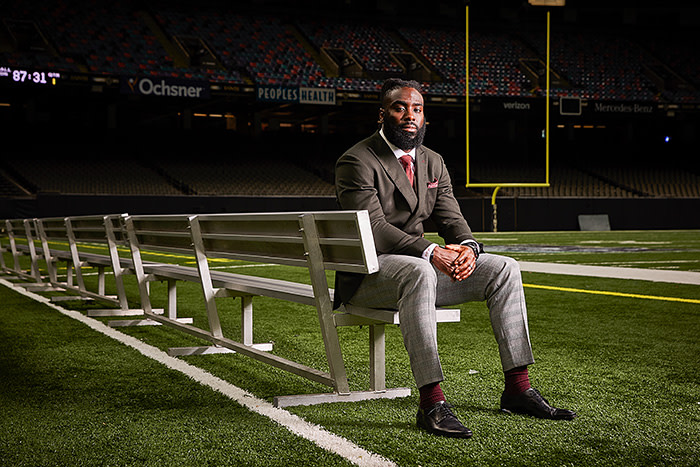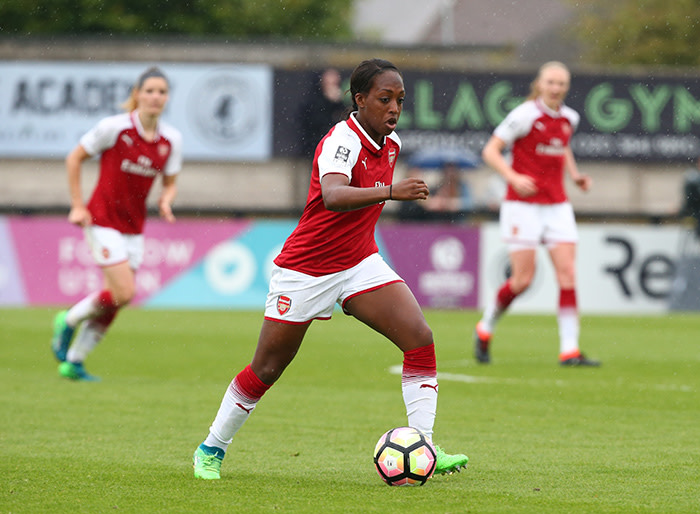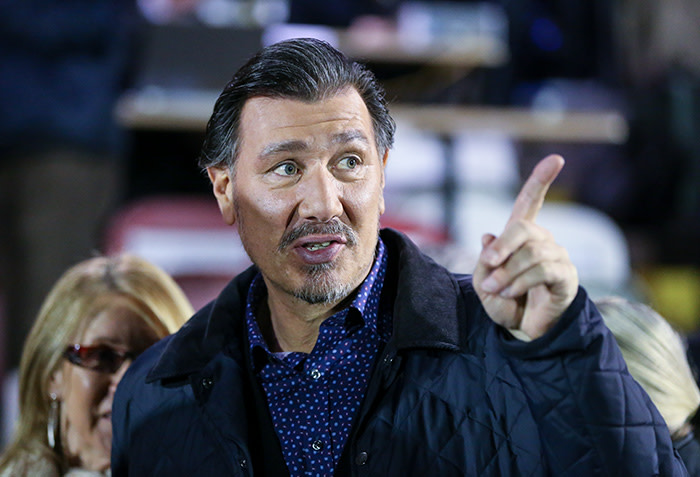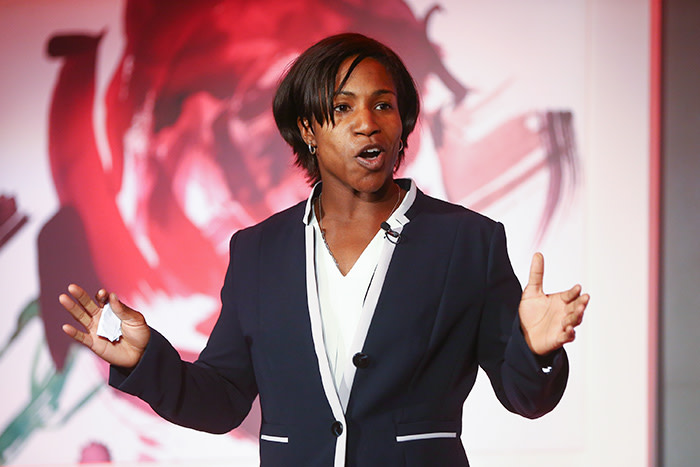MBAs help athletes plan for life after the game

Roula Khalaf, Editor of the FT, selects her favourite stories in this weekly newsletter.
Demario Davis is convinced that playing American football at the highest level has made him a better MBA student. “To be prepared for a game you have to study your opponent almost like you’re studying for a test,” says the New Orleans Saints linebacker. In turn, he credits the MBA with improving his game, by expanding his mind and helping him to retain more information.
Davis is among 72 current or retired American football players studying online for an MBA with Indiana University’s Kelley School of Business, through its partnership with the National Football League Players Association. If he passes with a “C” grade or higher, the NFLPA will reimburse his tuition fees. The partnership, launched in 2014, is one of several business education programmes targeted at elite athletes in recent years.
Harvard Business School’s semester-long Crossover Into Business programme for professional athletes follows a 2017 pilot, which paired 10 National Basketball Association players and recent retirees, who wanted to improve their business acumen, with MBA student mentors. Tuck School of Business at Dartmouth College in New Haven will host 35 sportspeople in April for the third session of its two-week Next Step: Transition to Business general management certificate programme for elite athletes and military veterans.
Also since 2011, 49 Team USA athletes have earned an MBA through a wider education partnership between the United States Olympic Committee and DeVry University’s Keller Graduate School of Management. A further 110 are pursuing MBAs.
Davis, whose first degree was in communications, went back to school because he wanted to stand out from the crowd. “There’s a lot of people out there with degrees [but] there’s not a lot of people with masters in business degrees and so I wanted to add it to my tool belt,” he says. “Maybe I want to go into some type of entrepreneurship or . . . franchise when I’m done playing and so I wanted to have that [MBA] just in case.”

The sportsman, who learns alongside non-NFL students, studies during the off season. He thinks it important to have a broad understanding of business to make the most of the opportunities available to players. “You are your brand, you are your business,” he says. Learning about leadership and management has also been useful in launching his Devoted Dreamers Foundation last year to support and mentor inner city children.
The target timeframe for players to get their MBA is two years, although this is flexible and there is a 92 per cent completion rate. Richard Magjuka, faculty chair of executive degree programmes at Kelley, says NFL students particularly enjoy strategy meetings and the “competitive aspects of business”, with their regime and discipline ensuring they are “very effective students”. “Their athletic training puts them in a good position to do well in the programme because they’re disciplined and can maintain focus over 12 weeks, which is how long a course is,” he says.
The average NFL player salary was $2.95m in 2018, according to the NFLPA. But in rare cases, Prof Magjuka says an MBA student has earned $75-$100m during their playing career and so upon graduation may be managing the people who manage his portfolio. Other players want to enter the corporate world, but most are entrepreneurs looking to “sharpen their business skills”. He says a leadership mindset is developed through sport and many NFL students’ vision of entrepreneurship — starting a company, creating a team and leading it to business success — reflects their playing experience.
Sixty per cent of graduates from Miami Business School’s executive MBA for artists and athletes became entrepreneurs in for-profit or philanthropic ventures. While that standalone programme has since closed, a part of Miami’s global executive MBA will be reserved for athletes and artists from August.

Across the Atlantic, UK Elite Ice Hockey League clubs use business education as a recruitment tool. The club Manchester Storm has partnered with the University of Salford since 2016 to offer players who meet the entry criteria a fully funded place on Salford Business School’s MBA. The club cannot compete on salaries with teams in Sweden, Russia and Finland, so uses the partnership to attract players “for a discount”.
“From a Storm business side we pay less and we’re getting a higher quality player because he’s combining hockey and school,” says Ryan Finnerty, Manchester Storm’s lead coach and general manager. He says the fact that players become “better people off the ice . . . transpires on the ice”.
Back in the US, former running back Donald Brown, one of 16 MBA graduates through NFLPA’s partnership with Kelley so far, helps sportspeople with their continuing education and career development as an assistant adviser at AthLife, an advisory service. He says there is growing awareness among athletes that competing is a narrow window of their life — the average NFL career lasts less than four years.
“I think what’s unique about elite level athletes is they have a growth mindset,” he says. “They always want to improve and that is evident in the way people want to continue to learn as well.”

Sporting first
In what it believes is a world first, the University of Salford launched a “CEO of a Sports Organisation MBA” last September with training provider VSI Executive Education.
Students, including former Northern Ireland football manager Lawrie Sanchez, ex-England rugby union player Maggie Alphonsi and Arsenal and England footballer Danielle Carter, take the same modules as those on the general MBA but content is sports-orientated.
The two-year blended learning programme is targeted at elite athletes and leaders who want to be sports industry chief executives. Jonathan Lord, MBA director at the University of Salford, says there is growing demand for business education in sport. “I think people had their fingers burnt where you’ve got ex-sports professionals who have been great at the sport and then it’s automatically presumed they can then become business leaders,” he says. “They acknowledge themselves that they need just as much education around that than they did when they became professional athletes.”
Comments